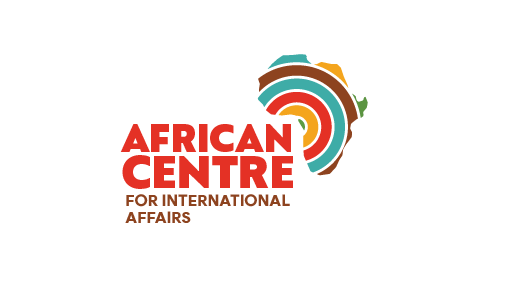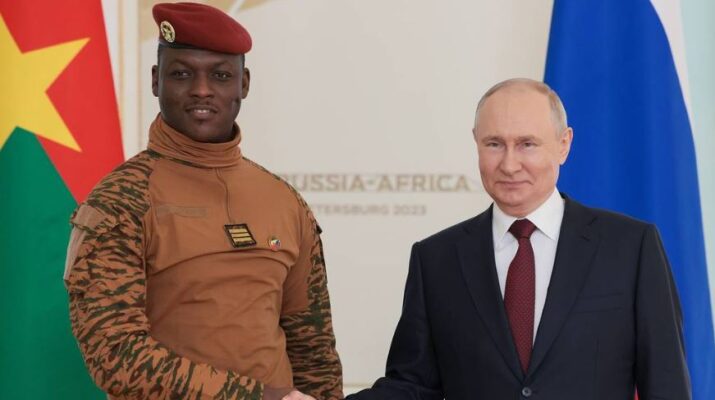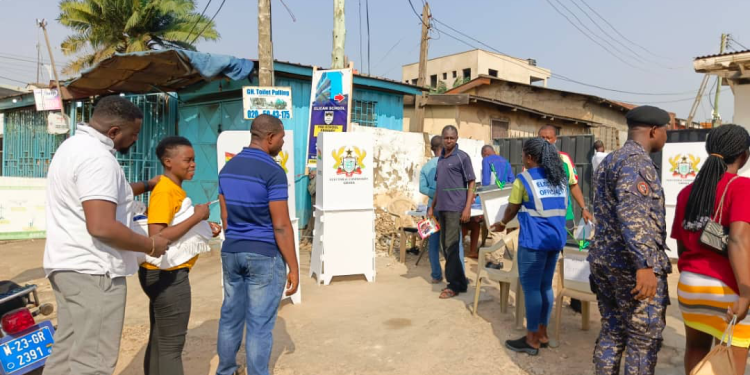The evolving dynamics of the global international order have defined a discernible trajectory towards multipolarity, wherein any potential hegemon cannot navigate into primacy without the overwhelming support of Africa. Russia’s burgeoning involvement and increasingly firm foothold in Africa have engendered mounting apprehension regarding the erosion of Western dominance over the continent. The armed uprising orchestrated by Yevgeny Prigozhin, Chief of the Wagner Private Military Company (PMC), in June 2023 unsettled the Kremlin’s position amidst Russia’s strategic geopolitical foothold in key African regions. This development ensued subsequent to Russia’s withdrawal from the Black Sea grain agreement. Nonetheless, expressions of solidarity, such as the display of Russian flags following the Nigerien coup in July 2023 and Prigozhin’s presence in the Central African Republic (CAR) post-rebellion, emblematically underscored Russia’s consolidated footprint in Africa (CSIS, 2023). The 2023 Russian African Summit, which drew participation from numerous African nations despite fall in the number of attendances by African states as a result of the ongoing sanctions and the international political discourse surrounding the conflict in Ukraine, served to reaffirm the resurgence of Soviet-era relations fostered by Russia, which had waned following the end of the Cold War.
This paper aims to scrutinize Russia’s burgeoning influence in Africa and the policy directives that have reinvigorated Russo-African relations amidst the shifting landscape towards global multipolarity.
Chronicling Russo-African Relations
The past decade has witnessed the revitalization of Russia’s engagement with Africa. Historically, three distinct periods have marked the interaction between Africa and Russia (Singh, 2022). The initial phase of engagement occurred during the post-World War II era when most African states had recently gained independence, characterized by the Union of Soviet Socialist Republics (USSR) supporting decolonization efforts in Africa from the mid-20th century until the collapse of the USSR in 1991. The USSR established numerous economic, political, and military partnerships with many African states, championing the anti-colonialism movement in Africa with ideologies blending socialism and Pan-Africanism. Moscow is credited with spearheading the UN General Assembly’s Declaration on Granting Independence to Colonial Countries and Peoples (UNGA resolution 1514 (XV)) (Kachur, 2020). This declaration coincided with the African liberation year, during which anti-colonial sentiments and pressure peaked, resulting in the independence of 17 African states in 1960 (Maekawa, 2023). Given that the Soviet Union was not involved in the colonialism of African states, it positioned itself as an ally with ideologically symbolic appeal, denouncing the inequality perpetuated by Western imperialist agendas that had impoverished Africa.
The current ruling African National Congress (ANC) of South Africa received aid from the Soviet Union in the 1960s to support its anti-apartheid movements, including providing direct arms to the ANC’s armed wing, Umkhonto we Sizwe (Kachur, 2020). The Soviet Union also played a crucial role in the liberation of Namibia by supporting the South-West Africa People’s Organization (SWAPO), aiding the Liberation Front of Mozambique (FRELIMO) in Mozambique, and supporting the People’s Movement for the Liberation of Angola (MPLA) in Angola (Dallywater et al., 2019). The Soviet Union’s presence in Africa was prominently displayed through direct military assistance in conflicts in Angola, Mozambique, and Ethiopia/Sudan.
The second phase saw a reduction in Moscow’s presence in Africa after the Cold War, coinciding with a weakened economy. Their socialist agenda lost influence in the discourse of a unipolar international system dominated by the US until the annexation of Crimea in 2014. Russia subsequently renegotiated its presence in African affairs, with Vladimir Putin, elected in 2000, leading sustained economic growth and undertaking visits to South Africa, Egypt, Algeria, Morocco, and Libya between 2005 and 2006. From 2008 to 2012, Putin’s successor, President Dmitry Medvedev, also visited Angola, Namibia, Nigeria, and Egypt to strengthen ties for Russia’s return to Africa.
The period following the Crimea invasion saw a significant shift in relations between Africa and Russia, with the invasion followed by severe sanctions imposed by the EU and US in an attempt to isolate Russia. The Kremlin viewed the revitalization of ties with Africa as a means to evade political isolation and mitigate the economic impact of the sanctions. The reduced US presence in Africa, exemplified by decreased US counterterrorism financing under the administration of President Donald Trump in 2018, solidified the establishment of Russian-African ties (Levin, 2021). The void left by the US led to the organization of the first-ever Africa-Russia Summit in October 2019 in Sochi, establishing robust ties with Africa and addressing the need to combat insurgency groups and provide support to various governments on the continent.
Russo-African Economic and Trade Relations
As part of their efforts to bolster diplomatic ties, Russia has strengthened its economic and trade relations with Africa by ramping up investment in key flagship programs tailored to meet the needs of partner African countries. Kremlin expenditure in Africa nearly doubled from $9.9 billion in 2013 to $17.7 billion by 2021 (Droin & Dolbaia, 2023). Russia currently supplies over 30% of Africa’s grain, with prominent states such as Egypt, Morocco, and Algeria having direct bilateral access to Russian grain supplies. However, this practice shifted when Russia pledged to supply 60 million tons of grains to other African countries for free in 2022. In a gesture aimed at reinforcing ties, the Kremlin delivered 200,000 tons of grains to Mali, Burkina Faso, Zimbabwe, and Eritrea simultaneously as announced by the Russian Agriculture Minister Dmitry Patrushev in February 2024. This action aimed to substantiate commitments made at the Second Russian African Summit, which emphasized food security, the promotion of a multipolar global system, and the restoration of relations between Africa and Russia (Russia-Africa, 2023). Several state-owned Russian companies are involved in hydrocarbon projects in North Africa. Moreover, Russia has positioned itself as a solution to Africa’s energy deficit by providing nuclear power plant assistance in Egypt since 2017, slated for full operation by 2030 (Reauter, 2024). It has signed several nuclear energy assistance bilateral agreements with some other African countries including Burkina Faso, South Africa, Ethiopia, Uganda, Congo, Rwanda, Mali, Morocco, Kenya, Nigeria, Zambia and Algeria (Klomegah, 2023). This move therefore exemplifies an energy diplomatic strategy by Russia. Additionally, Russia has positioned itself as a reliable partner for Africa’s natural resource exploration, offering investments and technical support to countries such as Angola, Congo, and Zimbabwe. Russia also imports consumer goods, capital goods, and a diverse array of vegetables from Morocco, Algeria, Egypt, South Africa, and Tunisia (Droin & Dolbaia, 2023).
Despite Russia’s limited investment in large-scale infrastructure and technical assistance programs, debt forgiveness has emerged as a key tool for deepening relations with Africa. This is exemplified by the announcement of over $20 billion worth of debt forgiveness for select African states (Madden, 2019).
Defense and Security
Peace and security in Africa have become more crucial than ever, particularly in the Sahel region, as security strategies shift from a state-centric to a human-centered approach in response to the non-traditional nature of threats, often stemming from violent extremist activities. Russia has maintained and continues to strengthen its military relations with Africa. Serving as the continent’s major arms supplier, Russia supplied 40% of Africa’s weapons between 2018 and 2022, with imports increasing from $500 million to $2 billion in recent times (Droin & Dolbaia, 2023). Additional arms are slated to be supplied to counter terrorism in the Sahel region. The affordability of Russian arms compared to those of other suppliers’ positions Russia as the preferred choice for African states facing budgetary constraints. Furthermore, many Western allies impose complicated conditions, such as adherence to democracy and human rights, on arms sales, a restriction Russia does not enforce.
Amidst the rise of insurgent activities and coups in West African states, Russia has provided arms and military support to affected countries through groups like the Wagner Group, which operates in Central African Republic (CAR), Congo, Gabon, Madagascar, Mali, and Libya (Hamilton, 2023). Since 2010, Wagner has conducted 34 operations in 16 African countries, providing training and participating in military operations alongside African forces. Despite constraints on Russia’s weapons production due to its conflict with Ukraine, Russia maintains its prominence as a major arms supplier to Africa, with most African allies of the Kremlin showing no inclination to seek alternative sources.
Furthermore, Russia has revitalized its ties with Africa amidst growing anti-French sentiments in French West Africa, fueled by resentment towards neocolonial Françafrique influences. Mali, Burkina Faso, and Niger, currently under military regimes following coups driven by insecurity, have expressed resentment towards French presence, leading to the termination of French military support agreements. This departure has created a vacuum that Russia is swiftly filling, cementing its presence in the region.
Major Implications of Contemporary Russian-African Relations
The Russian strategy to mitigate the impacts of political isolationism and economic sanctions has led it to view Africa and the Mediterranean as prime regions for seeking new markets and partnerships, aligning with its interests in fostering a multipolar international system. The Russo-Ukraine crisis has significantly influenced Russia’s decision to shed its Soviet relic legacy with Africa in order to cultivate relations. Africa’s bargaining power, with 54 representatives at the UNGA, renders it attractive for advancing major international political agendas of Russia. Additionally, the growing economic presence of China in Africa further reinforces Russia’s stake on the continent, as both countries share a vision of creating a multipolar international order to balance the influence of the US and the EU.
Employing anti-imperialist public diplomacy strategies bolsters Russia’s grip in Africa. However, the security implications of the departure of other strategic partners from Africa could create economic voids that the Kremlin may struggle to fill, given the harsh sanctions imposed by the EU and US. This could result in human security gaps for governments aligned with the Kremlin, leading to a visible neo-Cold War international political system.
President Putin’s support for Africa’s agenda to secure a seat on the exclusive UN Security Council reflects Russia’s historic backing for an empowered Africa and positions Russia as an anti-imperialist advocate for the continent. This move would enhance Russia’s decision-making powers in cases where additional support may be required to advance its foreign policy interests. Furthermore, as outlined in the Second Russia-Africa Summit, the Kremlin has pledged to secure G20 membership for Africa, a significant milestone in reaffirming Africa’s agency in the international system.
The use of Russian Private Military Companies (PMCs) in Africa may facilitate collective international efforts to combat insurgency in the Sahel region. However, this could be viewed as a double-edged sword as African states hosting Russian PMC operations, potentially would be exposing their security architecture and complicating the regional security complex in the Sahel. Moreover, Africa risks losing its indigenous security architecture to foreign powers, while the issue of terrorism persists. Addressing the activities of terrorist groups requires more than just military action; it necessitates states fulfilling their social contract duties by providing human-centered security deliverables.
The enduring relationship between Russia and Africa, from the Cold War era to the present neo-Cold War period, is a situation where Russia wants to be seen as a partner in ensuring peace, security and providing social infrastructure for the deprived and vulnerable states in Africa. This approach may solidify Africa’s alignment with Russia, given that Russia appears to consider governance issues as internal and tends to overlook it as key conditions for partnership. The Western powers sees this, as having implications for actualizing key liberal democratic practices on the African continent.
Recommendations
- Russia should consider accelerating its trading activities with Africa, as its current trade volume pales in comparison to other global powers. With only $17.7 billion worth of trade, Russia lags behind the EU ($295 billion), China ($254 billion), and the US ($65 billion) (Droin & Dolbaia, 2023). Increasing trade with Africa will bolster economic ties and mutual prosperity.
- In reassessing its counter-terrorism approach, Russia should adopt a comprehensive, people-centered security strategy to assist African states in combating violent extremism effectively.
- Russia may have to deepen it energy diplomacy efforts in Africa considering the critical need for affordable energy for accelerating the development pace of Africa.
- The Kremlin must prioritize support for good governance, accountability, and anti-corruption measures as essential means to uplift African states from underdevelopment. By championing these principles, Russia can establish itself as a reliable partner dedicated to empowering African nations to assert their agency on the international stage.
- Diversifying support for African states should include assistance programs aimed at building resilience against the impacts of climate change. Recognizing the role of climate change in undermining state capacity to meet the needs of their populations, Russia can contribute significantly to sustainable development efforts in Africa particularly in agriculture, energy diversification and the support for the development of climate friendly FinTech.
- African states must present themselves as partners for trade rather than consistently positioning themselves as vulnerable recipients of aid. By optimizing global partnerships and focusing on economic transformation, Africa can leverage its potential for mutual benefit.
- Sub-regional blocs in Africa should assertively resist foreign intrusions that do not serve the interests of their citizens. Redesigning security architectures to effectively counter terrorism and address critical security demands will be essential in safeguarding regional stability and development.
Conclusion
Russo-African relations have persisted since the era of independence and were solidified during the height of the Cold War. However, with the fall of the Berlin Wall, there was a notable retreat of Russian presence in Africa as the unipolar global order, led by the US, went unchallenged. The subsequent rise of China has altered the landscape, weakening the dominance of the US-led unipolar order and paving the way for a potential revival of Russo-African relations, as evidenced by Russia’s success in Crimea. Russia has intensified its efforts to rejuvenate Soviet-era ties with Africa, signaling its readiness to engage with more African states. This revitalization of relations reflects a broader shift towards restructuring the international political order into one characterized by multipolarity, evoking neo-Cold War sentiments.
While Africa stands to benefit from this renewed engagement, it bears the responsibility of positioning itself strategically to optimize relations with international actors. African peace and security frameworks, particularly those aimed at countering terrorism, may need to be revisited to leverage strategic security partnerships with Russia. The stability of Africa is paramount, and Russia may need to play a more active role in African affairs to ensure a stable environment conducive to mutual prosperity. Russia’s support for empowering Africa, including efforts to include the AU as an exclusive member of the UNSC and fostering new directions for trade through platforms like BRICS and the African Continental Free Trade Area (AfCFTA), serves as a springboard for economic growth on the continent. These initiatives, coupled with Russia’s engagement in the G20, underscore its commitment to fostering economic development and cooperation in Africa.
The article was authored for and on behalf of the African Centre for International Relations by Joseph Boateng and Shadrach Kunde who are both International Relations Analyst
References:
Centre for Strategic & International Studies (CSIS). Post-Prigozhin Russia in Africa: Regaining or Losing Control?. Accessed: 26/02/2024. https://www.csis.org/analysis/post-prigozhin-russia-africa-regaining-or-losing-control.
Dallywater, L., Saunders, C., & Fonseca, H. A. (Eds.). (2019). Southern African Liberation Movements and the Global Cold War ‘East’: Transnational Activism 1960–1990 (Vol. 4). Walter de Gruyter GmbH & Co KG.
Droin, M &Dolbaia, T. (2023). Russia Is Still Progressing in Africa. What’s the Limit? Accessed: 26/02/2024. https://www.csis.org/analysis/russia-still-progressing-africa-whats-limit.
Hamilton, R.E. (November, 2023). The Dragon and the Bear in Africa: Stress-Testing Chinese-Russian Relations. Foreign Policy Research Institute. Accessed: 26/02/2024. https://www.fpri.org/article/2023/11/the-dragon-and-the-bear-in-africa-stress-testing-chinese-russian-relations/.
Kachur, D. (2020). Russia’s Resurgence in Africa: Zimbabwe and Mozambique.
Klomegah, K.K. (November, 2023). Russia’s Dynamic Energy Cooperation with Africa. Accessed: 26/02/2024. https://moderndiplomacy.eu/2023/11/08/russias-dynamic-energy-cooperation-with-africa/.
Levin, M. (2021). Rethinking US Efforts on Counterterrorism: Toward a Sustainable Plan Two Decades after 9/11. J. Nat’l Sec. L. & Pol’y, 12, 247.
Maden, P. (October, 2019). Africa in the news: Russia-Africa summit, Botswana’s election, and Africa’s new growth projections. BROOKINGS. Accessed: 26/02/2024. https://www.brookings.edu/articles/africa-in-the-news-russia-africa-summit-botswanas-election-and-africas-new-growth-projections-russia-hosts-first-africa-heads-of-state-summit/.
Maekawa, I. (2023). Cold War and Decolonisation: The British Response to Soviet Union Anti-colonialism in Sub-Saharan Africa. The Journal of Imperial and Commonwealth History, 51(1), 182-210.
Reuters. (January, 2024). Putin, Sisi mark new phase of Egypt’s Russian-built nuclear plant. Accessed: 26/02/2024. https://www.reuters.com/business/energy/putin-sisi-mark-new-phase-egypts-russian-built-nuclear-plant-2024-01-23/.
Singh, P. (2022). Russia–Africa Relations in an Age of Renewed Great Power Competition. Accessed: 26/02/2024. https://southafrica.hss.de/fileadmin/user_upload/Projects_HSS/South_Africa/Dokumente/2023/Russia-Africa_relations_in_an_age_of_renewed_great_power_competition.pdf.
The Conversation. (March, 2022). History may explain South Africa’s refusal to condemn Russia’s invasion of Ukraine. Accessed: 26/02/2024. https://theconversation.com/history-may-explain-south-africas-refusal-to-condemn-russias-invasion-of-ukraine-178657.


